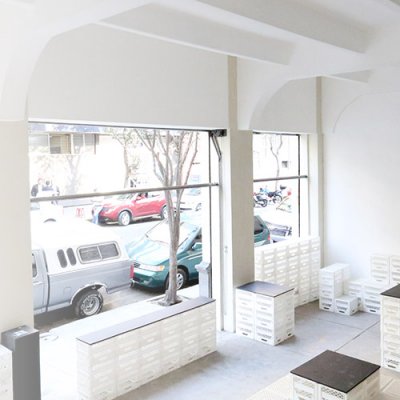BERLIN · the festival „Why Not July?“ presents works by the students of HZT – Inter University Center of Dance Berlin, artistically and conceptually works all between dance, performance, video art and installations. the distinctiveness of the three-degree programm at the HZT Berlin – BA “Contemporary Dance, Context, Choreography” - is found in the close connection between academic education and professional artistic practice.
Acrylic on canvas
by Ellinor Ljungkvist #5864
as a part of the festival also a film by Ellinor Ljungkvist will be shown. read the interesting plot:
have you ever imagined living in a foreign country without knowing how to speak the language, in a home that doesn't feel like a home, or with a constant feeling of limited freedom? imagine being randomly placed in a small room with 10 other people you don’t know, far away from the public eye, without having any power over your social and economical situation. imagine to be forced to live under these circumstances for six, seven sometimes even 10 years. since several years a constant increase of emigrants coming from Afghanistan, Pakistan, Iraq and Iran into Europe can be observed. just in Austria we know, that at this moment around 13,000 people seek asylum having to deal with exact these circumstances. these asylum seekers, besides having to go through tedious court proceedings, have to live under constant pressure of deportation.
one of these people is Khaled. he is originally from Afghanistan, but lives in Vienna, since 1994. Khaled´s house had been bombed by Mudjaheddin “Group 7” right after the communist regime and his home country collapsed. this was the moment in which he realized he had to leave the country because he understood he would no longer be able to live his life. so by the age of 17 Khaled arrived in what he had imagined as “humane Europe”, a continent controlled by governments that could actually support their citizens and also him, a man in need, a refugee. but he met quite another reality. aready three weeks after his asylum application, he received a negative answer. so the police eject him from the refugee housing in Traiskirchen and he had to sleep on the street. this changed when he got in contact with the Diakonie, an independent church organization. they helped him contest the courts decision, citing the fact that he was underage when he arrived in Europe. getting a second chance Khaled had to shared a room together with eight strangers. for the time, they each received 7 euros a month, many of them got depressed and some even tried to commit suicide. “it felt like being in a jail”, Khaled explained. when his case was revised the judge told Khaled to verify his reasons for asylum. this was the beginning of a long process that in the end would take 6 years. in an interview with the UBAS “Independent State Senate for Asylum matters” Khaled, who was at that point about to face deportation, in one occasion mentioned that he was a painter. the court immediately became interested and wanted to see his works. two weeks later he showed his drawings, some of which depicted nude models. now these nude drawings had surfaced, all of a sudden it had become clear to them, that he could not go back to Afghanistan without risking his life: the drawings represented an affront to political, social and religious Muslim beliefs and rules. finally, after all these years of trying to find the right arguments, it was a “simple” drawing that convinced the judges that Khaled actually had the right to stay.
Crew
Concept & model Ellinor Ljungkvist
Painter khaled Mai Dani
Film recording & editing Bernhard Schorner
Photography & sound recording Martin Eller
Cover art Bernhard Schorner | Martin Eller


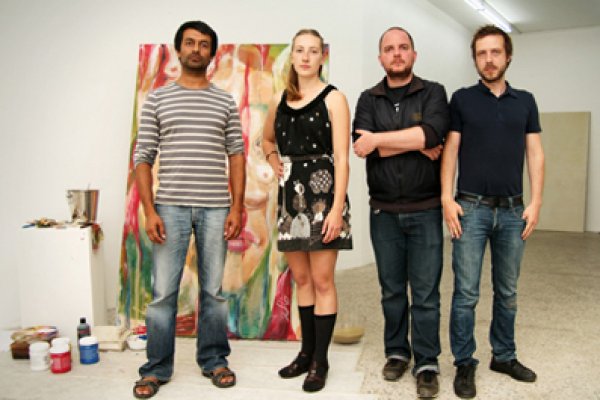
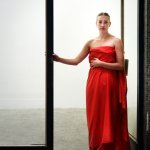
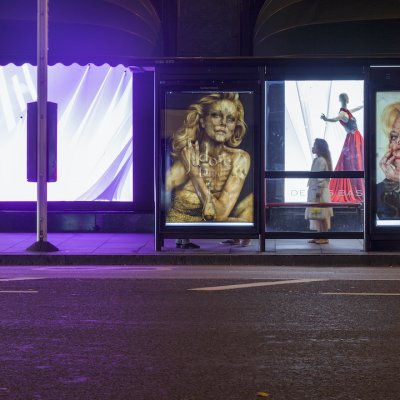
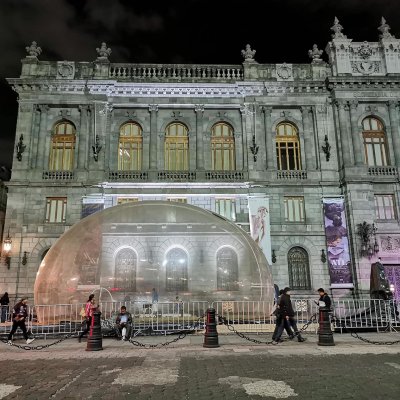
 9.18.05 p.m..400x400xC.png)
